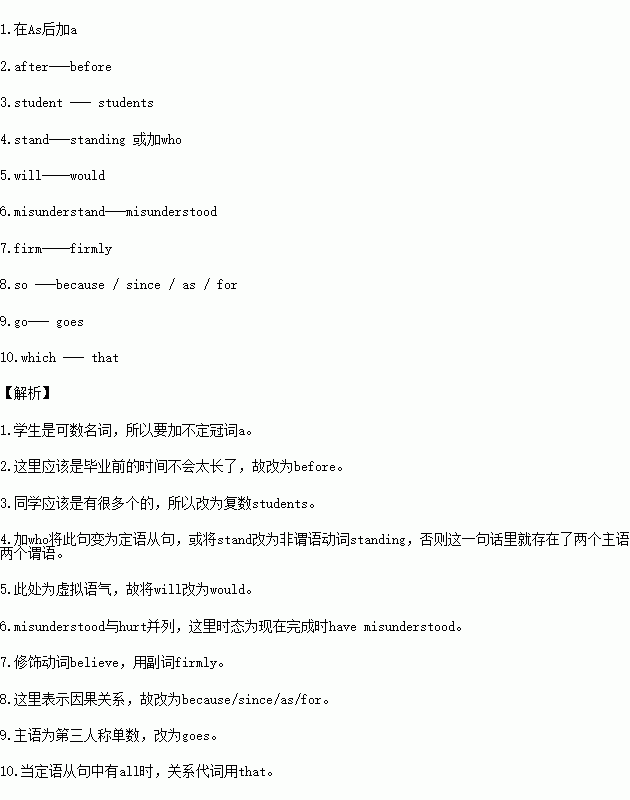题目内容
假定英语课上老师要求同桌之间交换修改作文,请你修改你同桌写的以下作文。文中共有10处错误,每句中最多有两处。错误涉及一个单词的增加、删除或修改。
增加:在缺词处加一个漏字符号(Λ),并在其下面写出该加的词。
删除:把多余的词用斜线(\)划掉。
修改:在错的词下划一横线,并在该词下面写出修改后的词。
注意:
1.每处错误及其修改均仅限一词;
2.只允许修改10处,多者(从第11处起)不计分。
As senior three student, it won’t take long after I graduate. Now, I have much to share with my fellow student.
Firstly, I’d like to show my appreciation to those stand by me all the way, teachers, parents and friends included. Without their help and advice, my life will be different. Secondly, it’s high time that I said sorry to the classmates I have hurt and misunderstand. I firm believe that communication and smiles act as bridges to friendship. Above all, I’ve made up my mind to make every effort to study, so hard work is the key to success. Just as the old saying go, “No pains, No gains.” Finally, I want to express my hope which all the young fellows can make full use of time, because time and tide wait for no man.
 天天向上一本好卷系列答案
天天向上一本好卷系列答案 小学生10分钟应用题系列答案
小学生10分钟应用题系列答案

 texting are increasingly common, especially among teens. And that could be a problem. Texting affects learning and performing on test, a new study finds. So a Montana teen, Colin decided to test that.
texting are increasingly common, especially among teens. And that could be a problem. Texting affects learning and performing on test, a new study finds. So a Montana teen, Colin decided to test that.